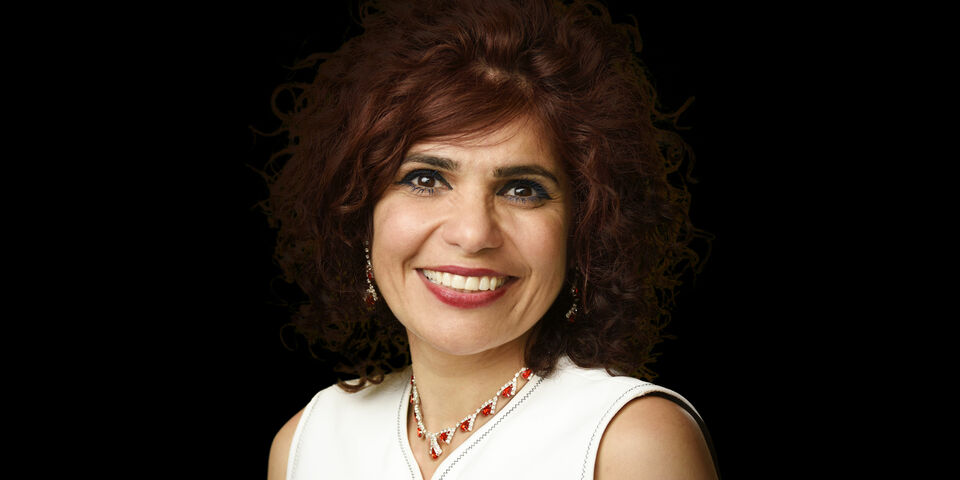Masi Mohammadi | “Pioneers are often strange birds, the black sheep”
Our latest special edition included interviews with eight TU/e pioneers. Too good not to share with you online. Today: orofessor of Smart Architectural Technologies Masi Mahammadi. "I am continuously inspired by fine people with blossoming minds."
Living in a robot that feels for you - that's how Masi Mohammadi likes to refer to her ‘Empathic home environment’ (the title of her inaugural speech). The Professor of Smart Architectural Technologies is keen to make our everyday life at home easier and more pleasant with the help of smart technology that knows, understands and senses us, and can respond appropriately.
What question would you like to be asked?
“How I see 2040 and how we'll be living then. I think by that time we'll have made peace with the way in which we can use technology in the home. We are still rather fearful of some technologies - certainly if they influence our daily patterns. Often what we have now are only partial solutions and the surrounding infrastructure is not yet in place. That incites resistance. In 2040 technology will be a modern servant available to us all, integrated into our immediate surroundings and warmly embraced by care services and the construction sector. All we'll need to do is optimize it.”
What led you to become a pioneer?
“I am continuously inspired by fine people with blossoming minds; at TU/e alone we have more than enough of them. Our regular lives, our daily problems and nature also inspire me. Added to all that, with three studies - cartography, civil engineering and architecture - I have a broad background. This combination of hard and soft, of context and object, has taught me that the truth has many faces, and that solutions lie at the interface of several disciplines.”
What is it about your personality that makes you a pioneer?
“I am always interested in what others have to say. I like to seek new collaborations. And I'm not afraid - innovation is often about daring to break existing rules and ways of thinking, including those in science. It isn't easy to be a pioneer, but I don't think there's a pioneer on earth who isn't a difficult individual. Pioneers are often strange birds, the black sheep, the outsiders. How do I deal with that? I accept it, but I also fight for what I believe in. That can be difficult at times, you'd rather blend into society - but I gave up any hope of that long ago.”
How do you relax?
“Mainly what I do gives me energy. Science is about creating, creating a thought, a possibility, or more concretely, a building. That gives so much satisfaction, it's a kind of drug. Of course there are moments when you can leave that behind. I like watching good films, I dance now and again, like to read, love poetry, or I take a walk - but to do those things I really have to set time aside. That I don't do this very often tells me that I evidently don't give them any priority and have less need of them.”
What will it take for you to say that your life has been a success?
“My loved ones are satisfied with me, so on an emotional level I feel I've already succeeded. For the rest, I've never really thought about how people see me or how they will remember me later. I'm driven by an intrinsic motivation to do things, because they make me feel good and make me a richer person, and add something to our society. One thing I know I do want to make and will make is an empathetic house in which we enjoy living and can grow old gracefully. That's my aim for the time being. Whether people will like it or whether I've made a difference with it over the longer term or have been able to get a little momentum going, I'll find out when the time comes.”
This interview was published previously in Cursor's 'The Explorer'-special.


Discussion